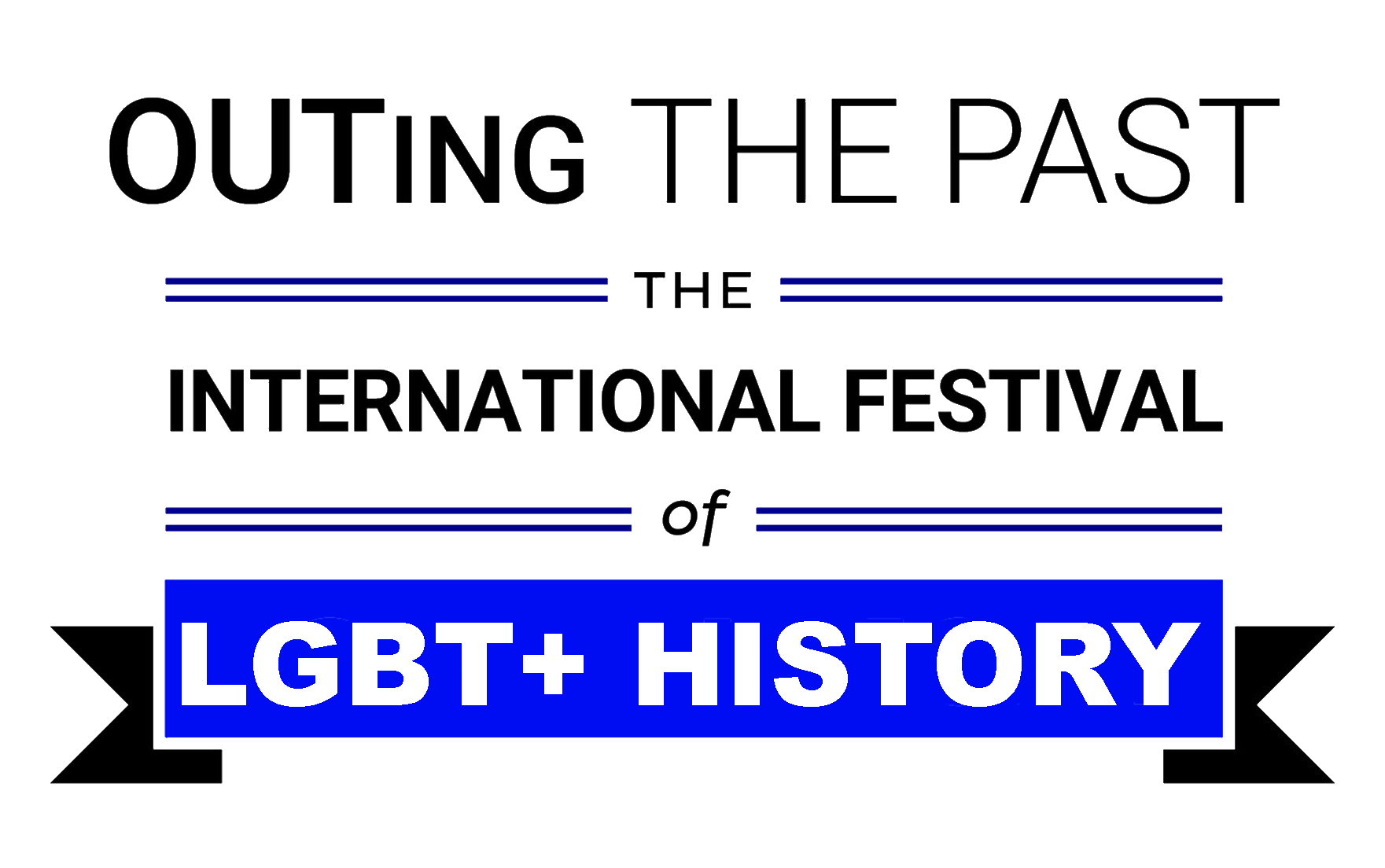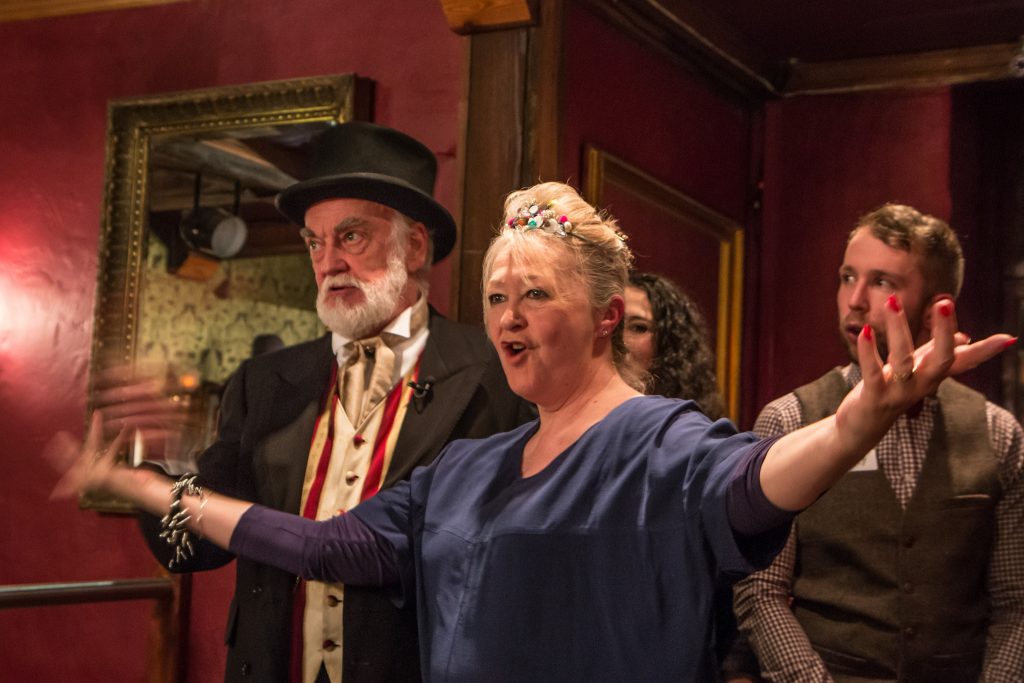Directing Festival Theatre: Raiding A Drag Ball
Dan Jarvis directed the very first episode of the first piece of Festival Theatre, “A Very Victorian Scandal: The Raid.” It was a complex immersive period recreation of a drag ball, with live music hall singing, a chorus of can-can boys, a nun on the door and a live police raid. Here Dan considers the many and varied potentials for all not being all right on the night.
JOHN SMEATHER AS THE EMCEE, CERIS FAULKENER AND DAN JARVIS (LEFT TO RIGHT)
It was a privilege to be invited to work with director Helen Parry and writers Stephen M. Hornby and Ric Brady on the LGBT History Month production of ‘A Very Victorian Scandal’.
THE CAN-CAN BOYS PERFORM
As a subject matter it was fascinating to me – a chance to lift the lid on the stories and communities that have been neglected by history. What made the story of the Hulme Drag Ball raid of 1880so engaging was that it reveals to us early formations of the LGBT community safe spaces and counter-publics that we now celebrate in areas such as Manchester’s Canal Street, Brighton and Soho. Unearthing these real life stories gives our community a sense of heritage, history, legacy and legitimacy.
When the project evolved to incorporate a recreation of the ball itself (before the subsequent trial and backroom political drama), it was a pleasure to use and combine my experience in directing musical theatre and postgraduate research in subcultural queer cabaret and theatre to create something really unique.
Performing in a public space not designed for stage performance offered a wealth of challenges but also opportunities. Logistically VIA is a tricky space to work with. The bar’s unique design throws up a multitude of issues surrounding sightlines and levels and blurred boundaries between audience and performers. Then there’s the issue of how do you ensure your actors are heard in an open bar on a Friday night? The biggest risk however was how the work would be received by the incidental audiences: punters who were there to enjoy a bar they frequent and feel their own sense of ownership over. There was every risk of heckling, disruption and a lack of the theatre etiquette we are used to in conventional performance spaces.
BAR AUDIENCE
However, I would make the counter-argument that it was taking this risk which was the performance’s greatest strength. We were able to take theatre to an organic audience comprised of LGBT History Month delegates, friends and family and an incidental LGBT bar audience.
In a piece that celebrates the heritage of LGBT community spaces, it felt integral to the project that we continue to engage those who inhabit such spaces today. Whether they choose to directly observe and follow the performance and the individual characters and storylines, or whether they just absorb the atmosphere and join in a well-known chorus or two – the connection and engagement with these non-theatre goers was vital.
LGBT HM AUDIENCE
MARK ROBERTS AS CAMINADA LEADS THE RAID
In terms of repertoire we took a slightly anachronistic approach using subversive music hall and cabaret numbers from throughout the history of the genre, ranging from queering classic pre-war songs such as “Hold Your Hand Out Naughty Boy” to paying homage to the likes of Danny La Rue and Hinge & Bracket. The result was a warmly nostalgic, rambunctious road-trip down a treasured piece of our history.
The mixed programme of lesser-known music hall numbers and well-known rousing songs in which the audience were encouraged to participate helped construct a lively and inclusive performance alive with a community spirit.
It was a pleasure to work with the ‘A Very Victorian Scandal’ team and to help recreate a truly sensational moment in Manchester’s hidden histories.
JOEL PARRY AS GORTON, RYAN FRANCIS AS WHITEHEAD AND DAN CHAPPELL AS THE MUSICIAN (LEFT TO RIGHT)
All photo credits to Nicolas Chinardet.






